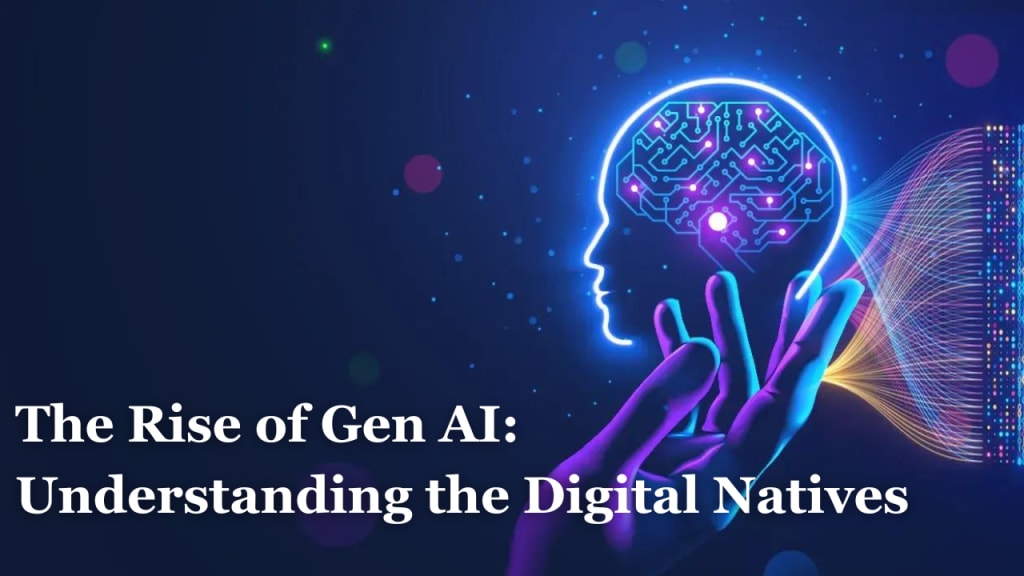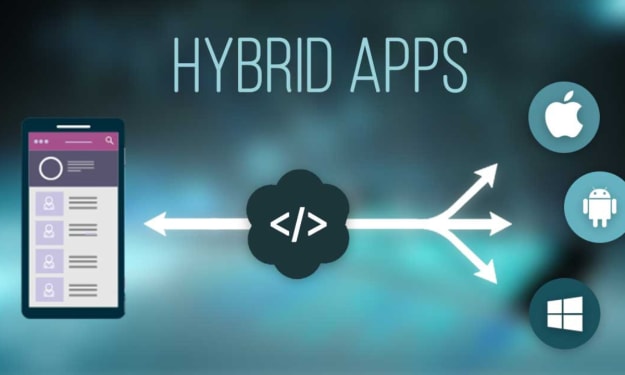The Rise of Gen AI: Understanding the Digital Natives
Navigating the Digital Frontier: Exploring the Impact of Gen AI on Society

Introduction
In today's rapidly changing world, a whole new generation is stepping into the spotlight – Generation AI. Unlike any generation before them, these digital natives have grown up in a world where technology especially artificial intelligence (AI) isn't just something they use occasionally. It's woven into the fabric of their everyday lives. Getting to know Gen AI is vital for businesses, educators and policymakers as they figure out how to best connect with and support this tech-savvy group.
Defining Gen AI
Gen AI includes those who've grown up surrounded by AI technologies that are everywhere, shaping the way they live, learn and see the world. Unlike older generations, Gen AI's childhood and teenage years are filled with AI-powered gadgets, algorithms and virtual helpers. Whether it's smart homes or personalized suggestions, AI is always there affecting everything from what they watch for fun to the jobs they aspire to have.
Characteristics of Gen AI
1. Digital Fluency:
Gen AI exhibits unparalleled digital fluency, effortlessly navigating complex digital ecosystems from a young age. They are adept at using multiple devices and platforms simultaneously, seamlessly integrating technology into their daily routines.
2. AI Integration:
Gen AI is incredibly comfortable with all things digital, effortlessly hopping around complex online worlds from a young age. They're really good at juggling lots of devices and apps at once, making tech a seamless part of their everyday life.
3. Customization and Personalization:
Growing up in an era of hyper-personalization, Gen AI expects tailored experiences across all facets of life. From personalized recommendations on streaming platforms to curated news feeds, they prioritize individualized content and services.
4. Tech-Savvy Entrepreneurship:
Gen AI really likes using technology to start their own businesses. They're often using online platforms to launch new ventures, make content, and reach people all over the world. For them, it's not always clear where work ends and having fun begins.
5. Social Media Savvy:
Gen AI is deeply entrenched in social media culture, adept at crafting online personas and navigating digital social networks. They are fluent in the language of memes, trends, and viral content, using social platforms as avenues for self-expression and connection.
6. Virtual Reality (VR) Adoption:
Unlike older generations, Gen AI sees virtual reality (VR) as just another part of their digital world. With VR, they can get fully immersed in stories, "travel" to different places without leaving home, and play games with friends like they're right there with them. It's like they're living in both the real and virtual worlds at the same time.
Implications for Society
1. Educational Paradigm Shift:
Educational Institution need to change the way they teach to help Gen AI learn better. They should focus more on stuff like how to use technology well, thinking carefully about things, and understanding what's right and wrong when it comes to AI. If they include AI in what they teach, it can help students learn how to use it in smart ways while knowing when to be careful.
2. Workforce Transformation:
As Gen AI enters the workforce, organizations must embrace AI-driven technologies to remain competitive. Upskilling and reskilling initiatives are essential to equip workers with the digital competencies needed in an AI-centric economy.
3. Ethical Considerations:
Because Gen AI depends so much on AI, there are worries about things like keeping personal information private, making sure AI doesn't unfairly favor certain groups, and holding AI accountable if something goes wrong. To keep everyone safe, we need strong rules and guidelines that make sure AI is used fairly and openly.
4. Cultural Shifts:
Gen AI is changing what we like and how we buy things, affecting everything from TV shows to ads. Businesses need to change how they do things to keep up with what Gen AI wants. They can use AI to give personalized experiences that really mean something to Gen AI, matching their values and interests.
5. Healthcare Innovation:
Gen AI's familiarity with health-tracking wearables and AI-driven diagnostics is driving innovation in healthcare. From personalized treatment plans to telemedicine services, AI-enabled healthcare solutions are revolutionizing patient care and wellness management.
6. Environmental Sustainability:
Gen AI cares a lot about the environment, and it's changing how we buy things. They want products that are good for the planet, and that's making companies think more about being eco-friendly. AI can help with this by finding ways to use energy better and lessen the effects of climate change.
Challenges and Opportunities
1. Cybersecurity Risks:
Gen AI's digital immersion makes them vulnerable to cyber threats, necessitating robust cybersecurity measures and digital hygiene practices to safeguard their online presence.
2. AI Literacy Gap:
Addressing the AI literacy gap is essential to empower Gen AI to harness the full potential of AI responsibly. Educational initiatives and public awareness campaigns can foster AI literacy and mitigate misinformation surrounding AI technologies.
3. Digital Inclusion:
Making sure everyone can use digital stuff is super important to stop unfair differences between rich and poor people from getting worse. We need to make sure everyone can afford and easily get access to things like AI and the internet, so no one gets left behind.
4. Innovation and Creativity:
Gen AI's affinity for technology presents unprecedented opportunities for innovation and creativity. By harnessing AI as a tool for collaboration and problem-solving, Gen AI can drive positive societal change and shape the future of work and innovation.
5. Algorithmic Bias Mitigation:
Fixing bias in AI is a big deal, especially because Gen AI uses AI a lot for making decisions. We need to find ways to make sure AI is fair and doesn't treat people unfairly. By doing that, we can make AI better and more trustworthy.
6. Digital Citizenship Education:
Promoting digital citizenship education is essential to equip Gen AI with the knowledge and skills to navigate ethical dilemmas and digital responsibilities. By fostering digital empathy, critical thinking, and online civility, we can cultivate a more informed and responsible digital society.
Also Read: Exploring Blockchain: Applications, Challenges, and Future Prospects
Conclusion
The rise of Gen AI is changing how we use technology and see AI in our lives. It's really important to understand what makes this generation special, the problems they face, and the good things they can bring. This will help us make sure everyone gets a fair chance, AI is used in the right way, and we're ready for the jobs of tomorrow. If we teach people about AI, make sure everyone can use it, and do the right thing with it, we can make the future better for everyone.





Comments
There are no comments for this story
Be the first to respond and start the conversation.